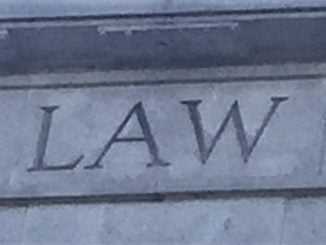RALEIGH — In a contentious opinion featuring barbs from both the majority and dissent, the N.C. Supreme Court on Friday, Aug. 19 overturned a decision by the state appeals court and ordered amendments approved by voters in 2018 to undergo further scrutiny.
At issue in the case is the fate of amendments made to the state constitution via direct vote in 2018’s general election. A total of six amendments were on the ballot, four of which that were approved.
The case, NAACP v. Moore, seeks to invalidate two of the amendments: a voter ID requirement and capping the state’s income tax.
Associate Justice Anita Earls, who was elected in 2018, authored the opinion of the court’s four Democrats.
“The precise legal question before us is whether a General Assembly composed of a substantial number of legislators elected due to unconstitutional gerrymandering may exercise the sovereign power delegated by the people of North Carolina to the legislature under article XIII, section 4 of the North Carolina Constitution,” wrote Earls.
“We conclude that article I, sections 2 and 3 of the North Carolina Constitution impose limits on these legislators’ authority to initiate the process of amending the constitution under these circumstances. Because the legislators elected due to unconstitutional racial gerrymandering retained the authority needed to avoid “chaos and confusion in government,” the trial court should have considered whether invalidating both the voter ID amendment and the tax cap amendment was necessary ‘upon balancing the equities” of the situation.'”
Earls’ reasoning boils down to arguing the legislature was “unconstitutionally racially gerrymandered” and the process initiated to enact the amendments “at the last possible moment prior to the first opportunity North Carolinians had to elect representatives from presumptively constitutional legislative districts.”
While not explicitly stating that amendments should be overturned, Earls laid the legal groundwork to do so.
Republicans pushed back forcefully on the decision.
“This is the most tortured legal theory the North Carolina Supreme Court has ever used in its storied history,” said North Carolina Republican Party chairman Michael Whatley.
In a dissent, Justice Phil Berger, Jr. wrote, “At issue today is not what our constitution says. The people of North Carolina settled that question when they amended the constitution to include the voter ID and tax cap amendments. Instead, the majority engages in an inquiry that is judicially forbidden — what should our constitution say? This question is designated solely to the people and the legislature.”
Berger continued, writing, “Unwilling to accept the results of a procedurally sound election that enshrined the voter ID and tax cap amendments in our state constitution, the majority nullifies the will of the people and precludes governance by the majority. In so doing, my colleagues extend the reach of their judicial power beyond mere judicial review of actions under our constitution; instead, they have determined that certain provisions of the constitution itself are objectionable.”
“The NC Supreme Court claims the court has power to reject constitutional amendments already approved by voters,” N.C. Institute of Constitutional Law president Jeanette Doran said in a statement.
“While the majority’s decision said the lower court ‘swept too broadly’ when it threw out the amendments, the real endgame of the majority appears to be doing just that but waiting until after this fall’s elections to do so,” Doran said.
The attention is likely to put more focus on the two races on the ballot this November.
Justice Sam Ervin, IV, a Democrat, is the only candidate currently on the Supreme Court who will be on the ballot. He faces Republican Trey Allen, who won the May 17 primary. In the other seat, which will be vacated by Democrat Robin Hudson. Two Court of Appeal judges – Republican Richard Dietz and Democrat Lucy Inman – are the two candidates for the other seat.
“The fact that Justice Ervin would allow himself to be the deciding vote in striking down the votes of more than 4.1 million North Carolinians is proof positive that he is not fit to serve on this Court,” Whatley added.



